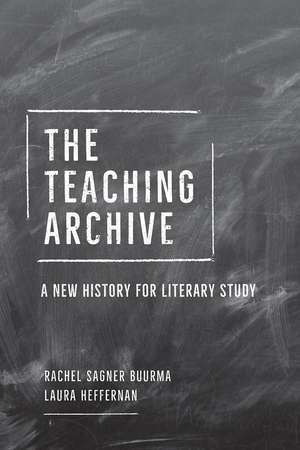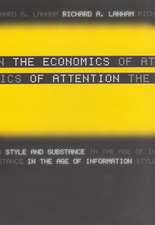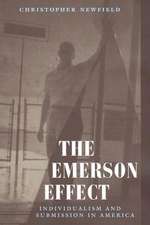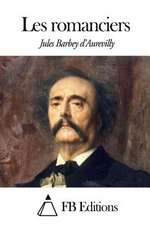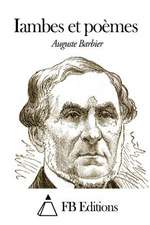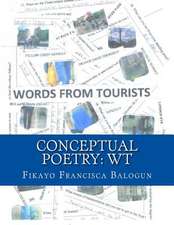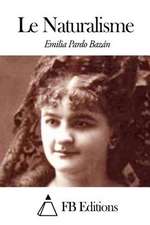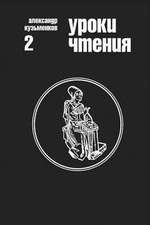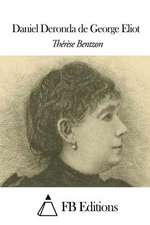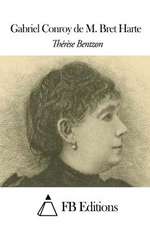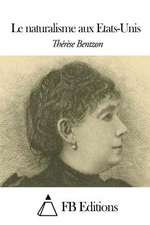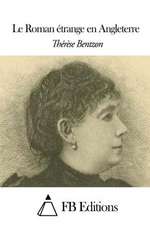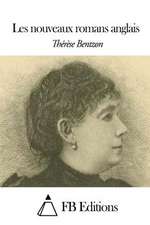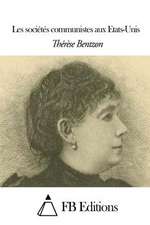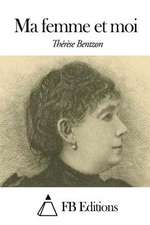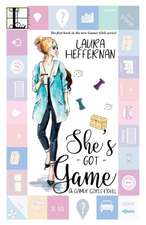The Teaching Archive: A New History for Literary Study
Autor Rachel Sagner Buurma, Laura Heffernanen Limba Engleză Paperback – 17 dec 2020
Preț: 200.74 lei
Nou
Puncte Express: 301
Preț estimativ în valută:
38.42€ • 39.88$ • 32.03£
38.42€ • 39.88$ • 32.03£
Carte disponibilă
Livrare economică 03-17 martie
Livrare express 14-20 februarie pentru 27.44 lei
Preluare comenzi: 021 569.72.76
Specificații
ISBN-13: 9780226736136
ISBN-10: 022673613X
Pagini: 320
Ilustrații: 25 halftones
Dimensiuni: 152 x 229 x 36 mm
Greutate: 0.45 kg
Ediția:First Edition
Editura: University of Chicago Press
Colecția University of Chicago Press
ISBN-10: 022673613X
Pagini: 320
Ilustrații: 25 halftones
Dimensiuni: 152 x 229 x 36 mm
Greutate: 0.45 kg
Ediția:First Edition
Editura: University of Chicago Press
Colecția University of Chicago Press
Notă biografică
Rachel Sagner Buurma is associate professor of English literature at Swarthmore College. Laura Heffernan is associate professor of English at the University of North Florida.
Cuprins
List of Figures
A Note on Authorship
A Note on Authorship
Introduction: A New Syllabus
Chapter 1
Caroline Spurgeon, The Art of Reading (1913)
Chapter 2
T. S. Eliot, Modern English Literature (1916–19)
Chapter 3
I. A. Richards, Practical Criticism (1925), and Edith Rickert, Scientific Analysis of Style (1926)
Chapter 4
J. Saunders Redding, The Negro in American Literature (1944) and American Biographical Literature (1976)
Chapter 5
Cleanth Brooks, Modern Poetry (1963), and Edmund Wilson, Literature of the Civil War (1959)
Chapter 6
Josephine Miles, English 1A (1940–55)
Chapter 7
Simon J. Ortiz, Native American Arts (1978)
Conclusion: The Past We Need Now
Acknowledgments
Appendix: Archives and Collections Consulted
Notes
Bibliography
Index
Appendix: Archives and Collections Consulted
Notes
Bibliography
Index
Recenzii
"The Teaching Archive is an exemplary piece of collaborative research and a timely tribute—in both its well-written form and material content—to the work teachers do and to the classroom as a space in which groundbreaking humanist research happens. As a book that will be read in the aftermath of 2020, it can only grow in significance. The case for the classroom as somewhere that ideas and texts are made rather than delivered seems destined to become more interesting as we stop taking that material space for granted."
"Rachel Sagner Buurma and Laura Heffernan present The Teaching Archive as a commentary on the teaching materials of nine different figures. . . . Yet the book is more than a teacher’s guide or a collection of scattered observations about what has worked in a classroom. It is a history of literary study pitched against the accounts of literary professionalism that have given us the sense that we should guide our thinking about literature by doctrinal statements."
"The Teaching Archive raises profound questions about the relation between teaching and research [in literary studies], questions that consistently fail to be addressed by the discipline’s system of professional rewards, its de facto demotion of teaching to a practice of lesser value than scholarship. . . . If the literary professoriate has sometimes forgotten what happens in the classroom, it is the great contribution of this book to remind us that without collaboration, there is no teaching, and that without teaching, the discipline has no history."
"The Teaching Archive aims to correct the longstanding underestimation of teaching as a major part of the intellectual life of the professor. At the same time, it upends binaries between formalism and historicism, teaching and research, and scholars and critics that have long dominated our accounts of how the discipline of literary studies has evolved. Buurma and Heffernan succeed admirably in disproving the schematic that pits scholars against critics and formalists against historicists while reducing most classroom teachers to mere handmaids of some greater intellect’s brilliant theory. . . . Through this series of case studies, they argue that scholars of literature and historians of literary studies alike have largely ignored teaching as a site of practice and innovation, and, crucially, that a more accurate assessment of how professors have taught literature across the full scope of institutions of higher education may help point the way forward for a discipline in crisis."
“The Teaching Archive proposes a new disciplinary history of English studies through the teaching practices of some of its most storied scholars. . . . Tracing how methodological debates have played out in practice—not as manifestoes but as pragmatic, provisional solutions to the question of how to read, and how to learn—Buurma and Heffernan suggest that such attention might allow scholars 'to evade the deadening impasse of disciplinary autocritique.'”
“This book makes a fascinating and radical claim: that the English and American literary tradition was forged not by scholarly books and articles but by classroom discussion. Thus, the belief that scholars at elite institutions publish monographs so that knowledge 'trickles down' to students and to non-elite institutions is false, and the opposite is true: the knowledge produced by the selection of course texts and rich classroom discussions of literature, particularly at non-elite institutions, 'trickles up' to inform scholarship.”
“The Teaching Archive shows us what we should always have known: the history of English is not the history of big books of criticism talking to other big books of criticism. Instead it is the history of students and teachers talking to each other in the classroom, where what goes on has often been quite different from what conventional histories of the discipline have assumed. Buurma and Heffernan reanimate the twentieth-century classroom, and in the process they reanimate our understanding of the profession.”
“This remarkably well-researched, beautifully written, wise, and moving study offers the discipline of English literary studies a new account of its twentieth-century history. What would happen if we understood disciplinary history as unfolding in classrooms where literary critics worked as instructors, as well as through the field-changing books they authored? What would happen if we saw those books as themselves shaped by the everyday life of teaching? The Teaching Archive makes untenable much of the received wisdom about twentieth-century English studies; it makes silenced classroom voices audible once more.”
“How was literature actually taught in the classroom? Historians of literary studies have scarcely touched this centrally important question. But Buurma and Heffernan explore it in depth and detail, shifting our attention away from prestigious academic critics, and refocusing on syllabi, course notes, and student papers. And they show that, outside the elite universities, literary education could be much more inclusive, experimental, offbeat, and student-centered than we imagined.”
"The distinction between teaching and research is a key organizing principle of academia, and the hierarchy implicit in that distinction affects the rankings of universities, the careers of professors, and the public perception of higher education. The revisionist history of literary study offered by Buurma and Heffernan brilliantly explodes this false dichotomy, showing that the college classroom provided a dynamic laboratory that was fundamental to the development of the twentieth century’s most influential modes of critical theory. With the materials of classroom practice as archival evidence, Buurma and Heffernan restore a lost history of intellectual experimentation in which professors and students of all levels collaborated in the creation of the field of literary criticism. At the same time, they offer a compelling defense of the humanities as an active, integrated, and broadly accessible mode of education."
